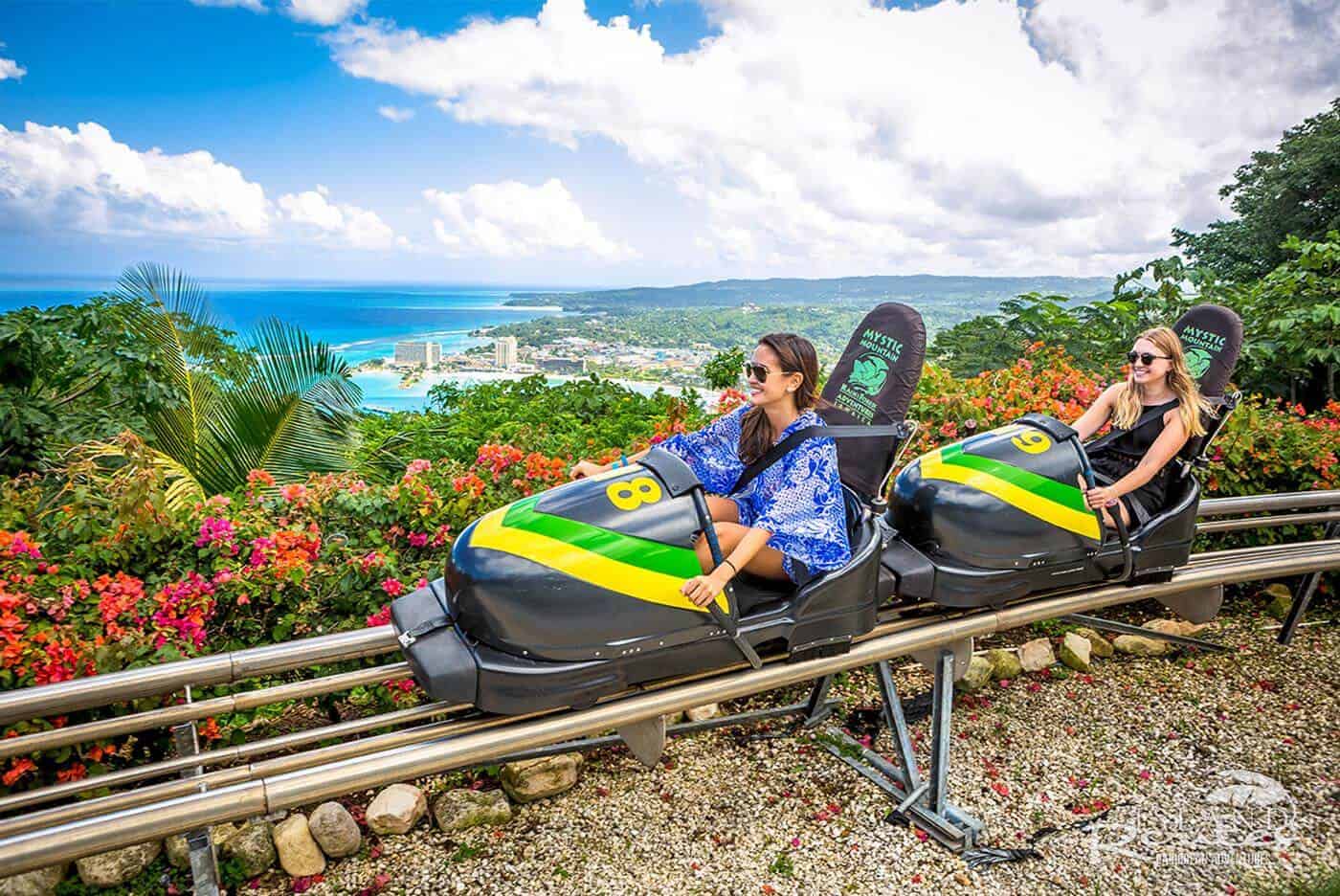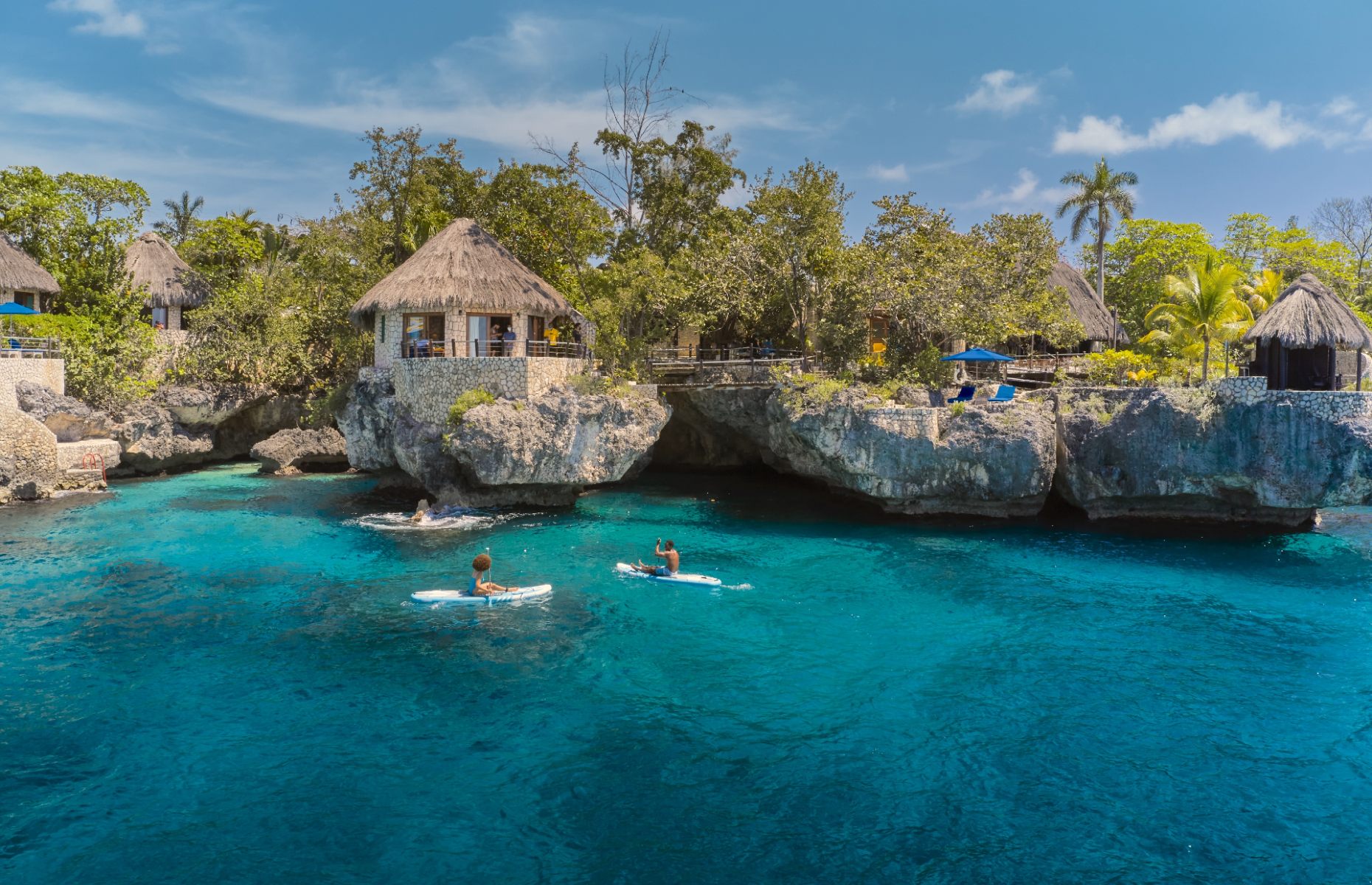Jamaica’s Emerald Embrace: A Deep Dive into Eco-tourism
Jamaica, a jewel of the Caribbean, is famed for its vibrant culture, reggae rhythms, and pristine beaches. However, beyond the all-inclusive resorts and bustling tourist hubs lies a rich tapestry of natural wonders and community-driven initiatives that are redefining travel on the island. Eco-tourism in Jamaica is not just a trend; it’s a growing movement, a conscious effort to preserve the island’s biodiversity, empower local communities, and offer travelers authentic, immersive experiences.
Jamaica’s diverse ecosystems, from lush rainforests to vibrant coral reefs, provide a fertile ground for eco-tourism.
The Blue and John Crow Mountains National Park: A Hiker’s Paradise

This UNESCO World Heritage Site, encompassing Jamaica’s highest peaks, is a haven for nature enthusiasts. Its misty forests, teeming with endemic flora and fauna, offer unparalleled hiking and birdwatching opportunities. The park’s significance extends beyond its natural beauty, serving as a refuge for the Maroon people, descendants of escaped slaves who forged a unique culture amidst the rugged terrain. Guided tours often include insights into Maroon history and traditional practices.
The Black River Safari: A Journey Through Mangroves and Wetlands
A boat trip along the Black River, Jamaica’s longest river, offers a glimpse into the island’s diverse wetland ecosystem. The river’s mangrove forests are home to a variety of wildlife, including the endangered Jamaican crocodile, numerous bird species, and diverse fish populations. Eco-tours emphasize responsible wildlife viewing and the importance of mangrove conservation.
The Cockpit Country: A Karst Wonderland
This rugged region, characterized by its unique karst topography, is a biodiversity hotspot and a cultural heartland for the Maroon people. Its dense forests, sinkholes, and underground caves offer challenging hiking trails and opportunities for spelunking. Eco-tours in the Cockpit Country often involve collaboration with local communities, providing insights into Maroon traditions and sustainable land management practices.
The Marine Parks: Diving and Snorkeling in Pristine Waters
Jamaica’s coral reefs, though facing challenges, remain a vital part of the island’s ecosystem. Marine parks like the Montego Bay Marine Park and the Negril Marine Park offer opportunities for responsible diving and snorkeling. Eco-tours often include educational components about coral reef conservation and the importance of sustainable fishing practices.

A defining feature of Jamaica’s eco-tourism movement is its focus on community engagement. Local communities are not just passive recipients of tourism revenue; they are active participants in the development and management of eco-tourism initiatives.
The Accompong Maroon Village: A Cultural Immersion
A visit to Accompong, the historical capital of the Maroon people, offers a unique cultural experience. Visitors can learn about Maroon history, traditions, and sustainable farming practices. Guided tours often include storytelling, traditional music and dance performances, and opportunities to sample local cuisine.
The Source Farm Eco-Village: Sustainable Living in Practice
Located in St. Thomas, the Source Farm Eco-Village is a model for sustainable living and community development. The farm promotes organic agriculture, renewable energy, and eco-friendly building practices. Visitors can participate in workshops, learn about permaculture, and experience a self-sufficient lifestyle.
The Treasure Beach Community Tourism: A Model of Sustainable Development

Treasure Beach, a laid-back fishing village on the south coast, has become a model for community-based tourism. Local guesthouses, restaurants, and tour operators are owned and operated by residents, ensuring that tourism benefits the entire community. Eco-tours in Treasure Beach often focus on local culture, fishing traditions, and sustainable agriculture.
The Portland Environmental Protection Association (PEPA): Protecting the Rio Grande Valley
PEPA, a community-based organization, is dedicated to protecting the natural resources of the Rio Grande Valley. They offer eco-tours, promote sustainable agriculture, and advocate for responsible development. Visitors can participate in river rafting trips, hiking expeditions, and community projects.
Eco-tourism in Jamaica is not just about visiting natural attractions; it’s about minimizing the environmental impact of tourism activities.
Eco-Lodges and Guesthouses: Embracing Sustainable Accommodation
A growing number of eco-lodges and guesthouses are adopting sustainable practices, such as using solar energy, rainwater harvesting, and composting. These accommodations often feature natural building materials and blend seamlessly with the surrounding environment.
Responsible Tour Operators: Promoting Sustainable Travel
Eco-tour operators are committed to minimizing their environmental footprint. They often use fuel-efficient vehicles, avoid single-use plastics, and educate visitors about responsible travel practices. They also work closely with local communities to ensure that tourism benefits the entire region.
Sustainable Agriculture and Food Systems: Supporting Local Farmers
Eco-tourism initiatives often support local farmers and promote sustainable agriculture. Farm-to-table restaurants and markets offer fresh, locally sourced produce, reducing the carbon footprint associated with food transportation. Visitors can also participate in farm tours and learn about traditional farming practices.
Waste Management and Recycling: Reducing Pollution
Efforts are underway to improve waste management and recycling practices in tourist areas. Eco-tourism initiatives often promote the use of reusable water bottles and encourage visitors to minimize their waste. Community clean-up projects are also a common feature of eco-tourism activities.
Despite its growing popularity, eco-tourism in Jamaica faces several challenges.
Balancing Tourism Development with Environmental Protection
The increasing demand for tourism can put pressure on natural resources and fragile ecosystems. It is crucial to strike a balance between tourism development and environmental protection.
Ensuring Equitable Distribution of Benefits
It is important to ensure that the benefits of eco-tourism are distributed equitably among local communities. This requires empowering communities to participate in decision-making and ensuring that they receive a fair share of tourism revenue.
Addressing Climate Change Impacts
Climate change poses a significant threat to Jamaica’s ecosystems and tourism industry. Rising sea levels, coral bleaching, and extreme weather events are already impacting the island.
Promoting Sustainable Tourism Practices Among All Stakeholders
It is essential to promote sustainable tourism practices among all stakeholders, including government agencies, tourism businesses, and visitors.
Despite these challenges, eco-tourism offers significant opportunities for Jamaica. It can contribute to:
Economic Diversification and Job Creation
Eco-tourism can create new jobs and diversify the economy, particularly in rural areas.
Environmental Conservation and Biodiversity Protection
Eco-tourism can generate revenue for conservation efforts and raise awareness about the importance of protecting natural resources.
Cultural Preservation and Community Empowerment
Eco-tourism can support local communities and promote the preservation of cultural traditions.
Sustainable Development and Climate Resilience
Eco-tourism can contribute to sustainable development and build climate resilience.
Eco-tourism in Jamaica is more than just a vacation; it’s an opportunity to connect with nature, immerse oneself in local culture, and contribute to sustainable development. By choosing responsible tour operators, supporting local businesses, and minimizing their environmental impact, travelers can play a vital role in preserving Jamaica’s emerald embrace for generations to come. The island’s natural beauty, vibrant culture, and community-driven initiatives offer a unique and rewarding travel experience, one that leaves a positive impact on both the traveler and the destination. By choosing to explore the less-traveled paths, supporting community initiatives, and respecting the environment, you can experience the true heart of Jamaica and contribute to a more sustainable future for the island and its people.



